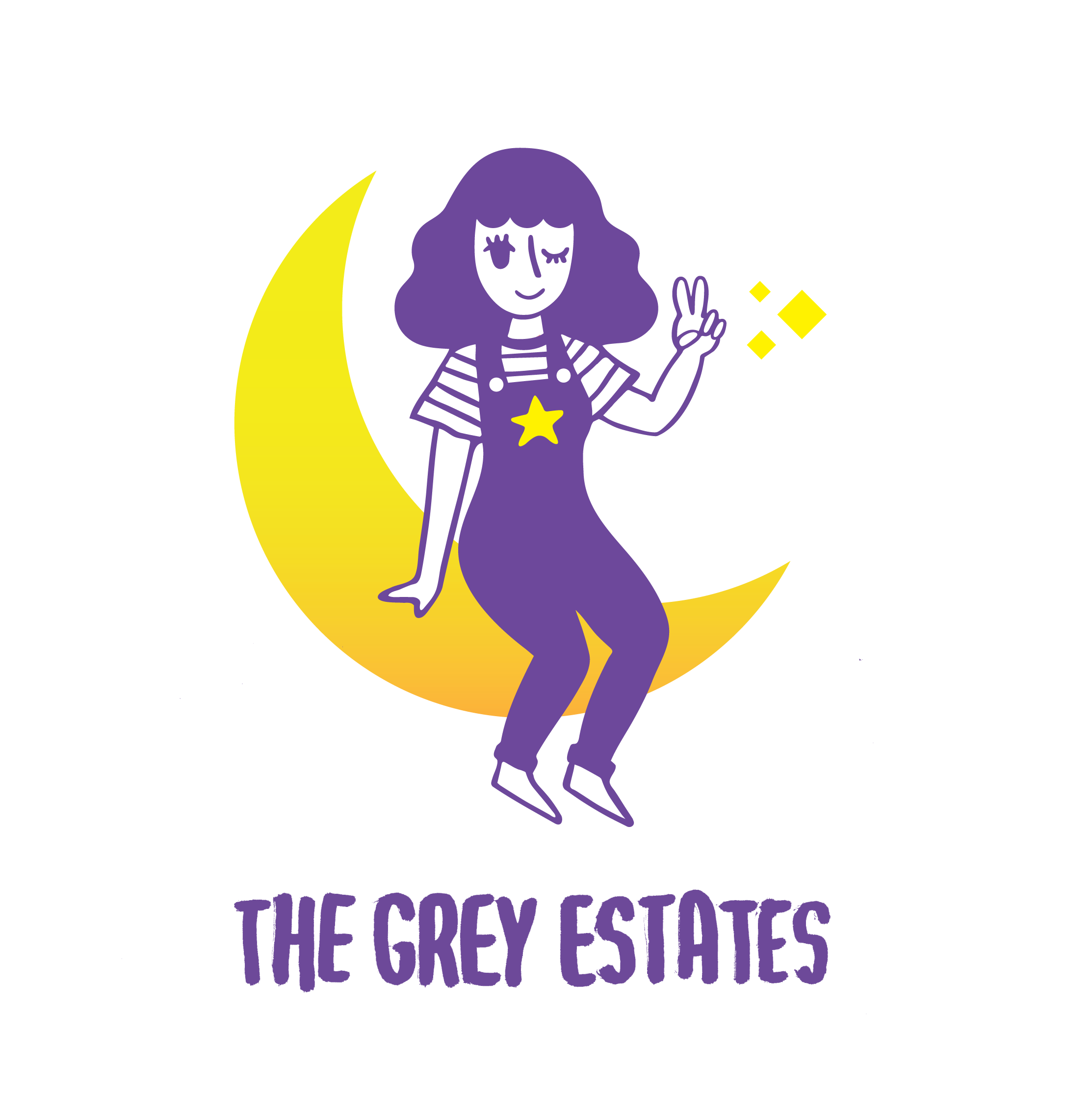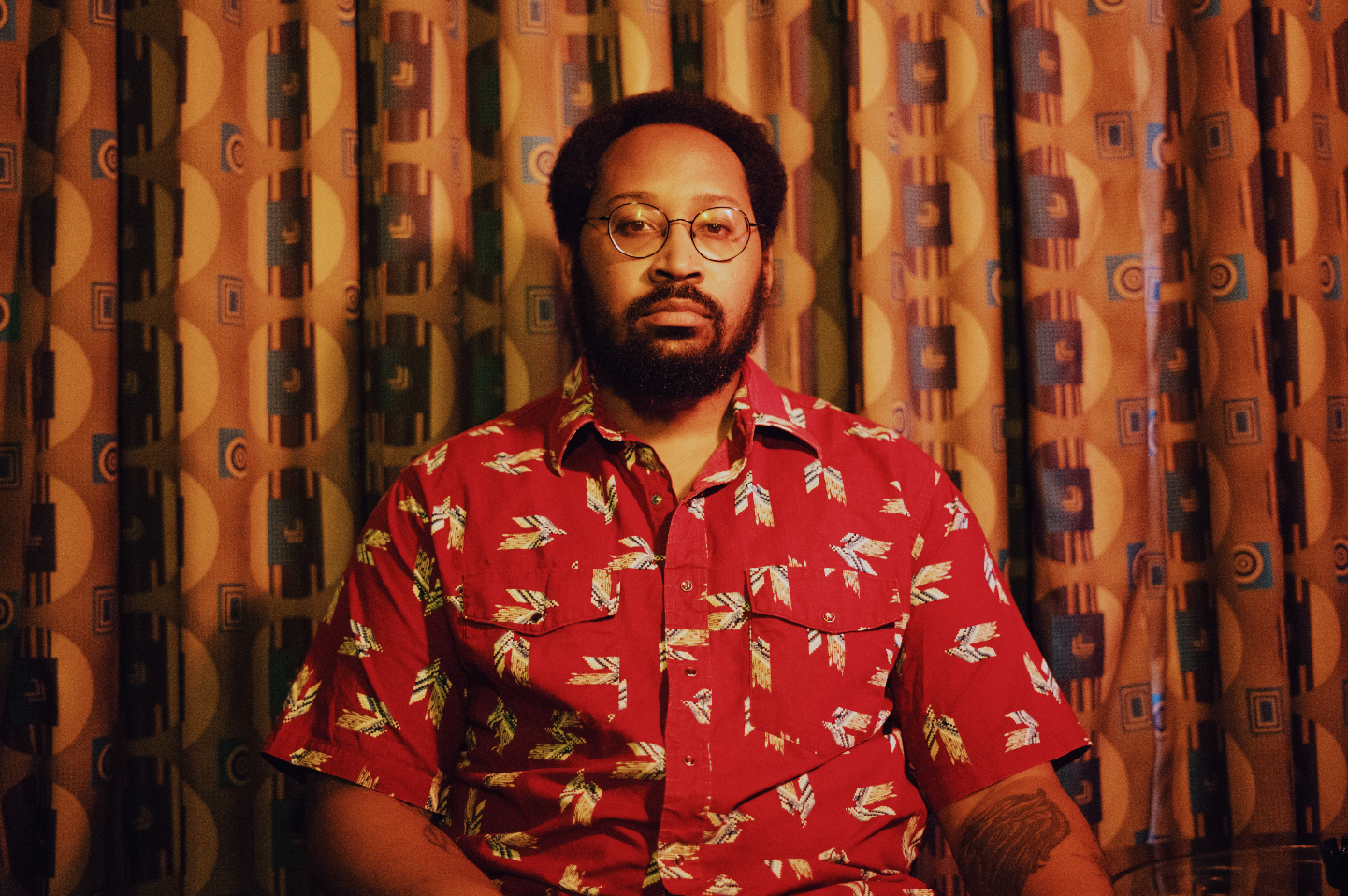Creator Chat: Bartees Strange + Ocenator

Welcome to Creator Chats - a conversation among two groups, bands or people in music. Today we welcome Bartees Strange and Oceantor (Elise Okusami).
photo: Bao Ngo
Ocenator: What gave you the idea to cover National songs? How did you pick which songs to do, and was this idea something you’d had been kicking around for awhile, or did it happen all at once?
Bartees Strange: I love The National. I'm sure you have bands like this, where they grow with you. I was into them more times than others throughout my life, but it's always been with me and been a soundtrack to my life. I have friends in my band, who our whole friendship was founded on loving The National, and we were always talking that it would be so cool to cover some National songs. But, no one ever covers the National and I didn’t want to be the person to do it.
Then, I went to see The National play live with Courtney Barnett. I remember going, and I was pumped because I love both bands, and I was like, ‘Damn, this is a killer show, but there's no Black people here, which is so strange, especially in Washington DC.’ I was kind of bummed, and I started thinking more and more about like, why is it that there aren't any Black bands like The National? After all the contributions Black people have made to rock music, and all the great bands that we can think of off the top of our head, why haven't they all had this amazing 20 year steadily growing Grammy winning career? How hasn't that happened for one of us? I thought it would be an interesting commentary on the struggles that Black people face in making indie rock music and white music, by covering their music.
Oceantor: How did you make “Lemonworld” so good?
Bartees: I almost didn't put that song out, because I thought it wasn’t that good. I was worried that it was too simple. That was a sneaky little song. It’s such a weird song, because there’s no bridge, and I never write songs like that. It was all an idea by Graham Richman, who is my synth player in the band.
photo: Alex Joseph
Bartees: I'm in love with “Crack in the World.” I think it’s so huge. Can you tell me about some of the choices you made on guitar? You’re writing riff after riff. What made you think it’s OK to put so many sick riffs in a song?
Oceanator: I was fooling around on my guitar and dropped G, just fucking around. And I wrote what was a song that we'd been playing live, and that's on the Audiotree now called “Goodbye, Goodnight,” which comes before “Crack in the World.” I had written them both separately, and then was like, these are both in drop D and in the same key. And it was kind of weird, and I was like, ‘I don't know if I can do this,’ but then I was like, ‘Oh wait, they are going to be two different songs. They're just going to be related. And they were originally called American rock song, part one and American rock song, part two.’
Those were written separately, just random fooling around on the guitar. And then I was like, ‘Oh, these actually work really well together.’ And that's how they became one song.
Bartees: Were you a busy kid?
Ocenator: I played sports and music, and obviously school and I did karate. I played soccer, basketball, softball until college when I just played basketball and rugby.
Bartees: I don't meet a lot of musician sports people and I'm not a sports person. You know, I played football, basketball, ran track, also was singing and playing guitar and did that forever in college, played football, got hurt. And then I started doing music a lot more. Just curious, do you think that your background, being in sports, makes you competitive? Or is music kind of the opposite for you, a place where you can go to not be competitive and flow?
Oceanator: I think in general, I'm a very competitive person and I don't know if that is why I like sports so much, or if it came from that, I think probably the first one, but music wise, I don't feel competitive. I don't feel like I'm competing with other musicians, you know? I feel we're all out here doing this thing that we love and I'm not trying to win something. I'm here to make songs, and enjoy making songs and play them and share them. And hopefully people also enjoy them.
That’s the whole point of the label [Plastic Miracles] that I started too. I want to be able to help other people. I can help other people out a little bit, and help draw more attention to other good music. That's what all of us should be doing. We're all making stuff, we're not trying to get one up on each other. That's not to say that we shouldn't challenge each other, because that's how you get better.
Bartees: I’m curious how you came up with the name for your label.
Oceanator: There’s an author that I really like that has a book called Flimsy Little Plastic Miracles. I kind of liked the idea of plastic miracles as a thing, I was thinking about how tapes, vinyl records, and CDs are little plastic miracles because they bring you these joyous transcendent moments.
Bartees: Last one from me, and I’m actually embarrassed I don’t know this, but where did you get your band name from?
Oceanator: This one is much sillier. I was sitting around, thinking randomly about stupid nonsense, and one of the things I was thinking about was what would the name of the superhero or super villain be that turned the whole world into an ocean. And then I was like, ‘Oh, it would be called the Oceanator,’ And then I was like, ‘Oh, that's cool. That's a cool word.’ And I was pretty sure there was not a band name, so I Googled it. No bands, immediately made a Twitter and Facebook and an Instagram. I was like, ‘This is mine.’ And then a year later, I started actually doing something with it.
Oceanator: Some more questions for you, what’s your idea way to exist as a musician? Studio stuff? Writing? Performing? All of the above?
Bartees: I’m the worst at this. This is literally all that me and my partner talk about. I think I want everything, and that again goes back to The National. When you're a musician, everyone was always like, ‘Oh, if you're going to be a musician, you got to sacrifice this. It's gonna be hard for you to have a relationship. You're not going to be able to live with no insurance, all these cons.’ Everyone's always bashing it. But people make it, and we know people who have. And I look at The National, and they haven’t had to sacrifice anything. They’re at the prime of their lives and careers, and I want that. I want to play in a kick ass band, I want to produce sick ass records, I want to help Black people make sick records. I want to run a studio, and make bad ass records. I want to do it around Baltimore and DC.
Oceanator: The last question, which is kind of similar to that, but what does the future look like for you without touring and shows? Do you have any ideas or thoughts about what you want to do going forward?
Bartees: I’m taking this time to get better at things, like I’m practicing mixing, practicing making drum sets, practice getting mixes to sound exactly like mixes I love. I’m just trying to get better at my instrument, so when the doors unlock, I’m ready. I’m trying to think of it as a hybrid, an incubation period. I’m writing, and trying to write as many ideas as I can. Like when the idea comes, I’ll write it down, but I’m not gonna beat myself up.
Oceanator: That's how I'm doing it too. I was doing mail order and then I was like, ‘Oh,’ and I wrote a little verse to a song, because it just popped in my head, and then I put my journal away and kept packing stuff up. I don't want to push anything out. I'm going to keep writing the way I've always written, I think, which is letting the ideas come when they're ready to come. It's not going to be like, just cause I'm on quarantine. I must write a record. I don't work that way. If other people do, that's awesome. I know some people write that way. They sit down to write and they write and that's great. That's just not the way I write.


